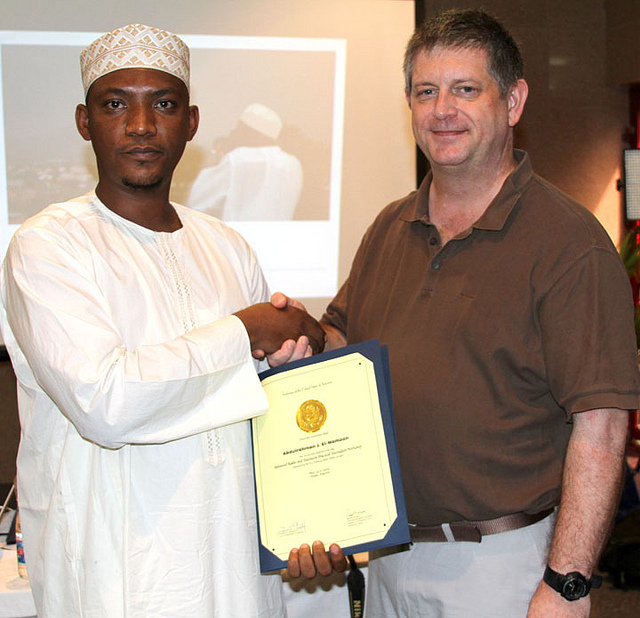The Federal Mortgage Bank of Nigeria (FBMN) has on Monday 23rd April disclosed a record of over 188 million naira profit in its operation in the first quarter of 2012. This, according to the Bank’s Managing Director, Mr. Gimba Ya’u Kumo, is the first profit the Bank has recorded in 20 years, which he attributed to the reform strategy adopted by the new management of the Bank. Also, according to the Managing Director, the Bank has succeeded in funding the building of over 61,000 units of houses across the six geo-political zones of the country, under the National Housing Fund (NHF) Scheme.
The primary mandate of the Bank is to assist the citizens to own a shelter, which is top on the human hierarchy of needs, through a loan facility. The National Housing Fund was also intended to strengthen the services offered by the Bank covering both the formal and informal sectors of the society. This means that citizens that belong to the formal sector, public or private, as well as those in the informal sector like farmers, market traders, mechanics, Okada riders etc, under the auspices of cooperative societies could process a loan facility to build or own a house, and pay back the sum installmentally through deductions from one’s salary or other payment arrangements.
However, many Nigerians including those in the formal sector are yet to feel the impact of the scheme, reasons for which constitute the major challenges of the Mortgage Bank’s operations. Today, a substantial percentage of Nigerians that make up for more than half of the nation’s population do not own a house. Many have been indirectly enslaved to landlords or land owners, who capitalize on the difficult situation to exploit the less privileged. Despite the daunting economic hardships faced by the citizens, presently, the cost of rent rises annually, more rapidly than the price of petrol. And this amounts to spending over 70% of an average salary earner’s income on rent. Sadly, owning a house or real estate property has now become the prerogative of only a few privileged individuals, thereby defeating the main aim of establishing the Mortgage Bank as well as the National Housing Fund (NHF). No doubt, this calls for a holistic review of government’s housing policies and programmes so that the present unwarranted trend could be checked.
Some of the root causes that can be identified as responsible for the inability of many Nigerians to own a decent home, and which undermine the operations of the Mortgage Bank and the NHF scheme include, lack of adequate and appropriate legal framework that would regulate the sector as well as ensure the affordability and accessibility of houses to the poor Nigerians. Many property owners take advantage of this, to sell properties at a very exorbitant rate. Also, there is lack of proper awareness among many Nigerians as to the existence of the Mortgage Bank and the NHF scheme, as well as how to access their services. Similarly, the payment arrangement for the available housing loan schemes may not be economically convenient or even affordable to many citizens, whose income is so meager that could not allow any kind of deduction. More so, even where the scheme is affordable, the process is usually riddled with widespread corruption and favoritism, whereby many eligible individuals are deprived, while others with some kind of political or other influences dominate the allocations, who later offer same to the less privileged at a very expensive cost.
There is therefore, the urgent need for the overhaul and total reform of the nation’s land and housing policies so that justice and equity can be guaranteed. There is also the need for proper regulation of land and housing transactions so that excesses can be checked. The Federal Mortgage Bank and indeed the government should intensify public awareness campaigns to avail the public, of the various opportunities they can grab and utilize in order to build or own a house. But more importantly, the government should ensure a genuine review of workers’ remuneration so that they can afford the deductions conveniently, and also rid the system of all corruption tendencies.
Also, government should formulate practical strategies that will give equal opportunities to those in the informal sector that have been systematically sidelined in various programmes of government like the National Health Insurance Scheme (NHIS), among others. It is also imperative for government to invest more in the housing scheme by developing new satellite settlements in order to decongest the already over-populated urban areas, and by implication addressing the problem of urban migration and reducing the high cost of building or owning a house in the cities.
The lives and well-being of citizens of many developed countries in the world is heavily dependent on mortgage schemes, not only in housing but other various sectors of their lives. It is therefore, imperative for Nigerian government to revamp its various mortgage schemes in order to improve the lives and well-being of the citizens.
